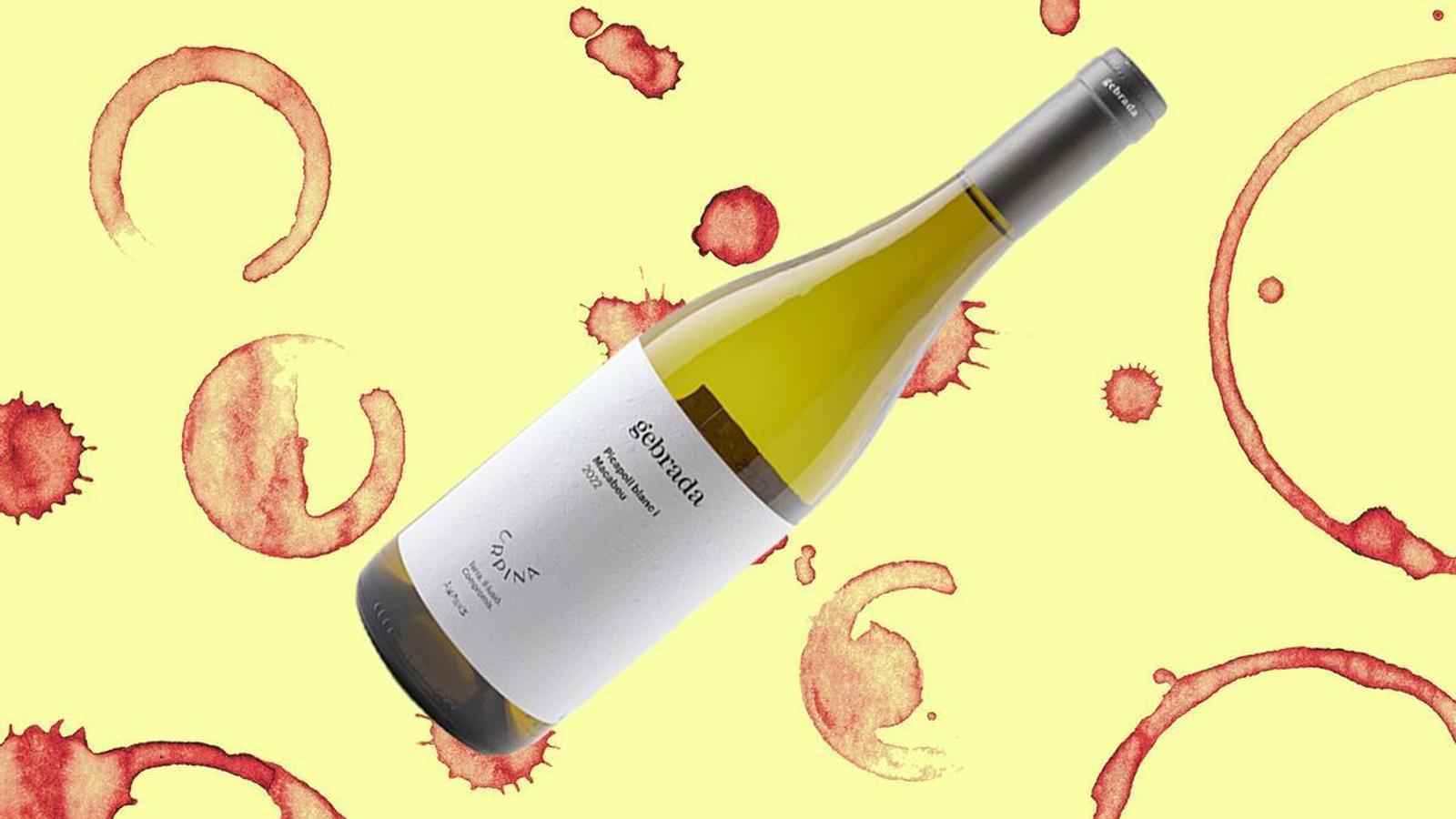If the stopper is cork, it should go in the organic waste bin. With proper treatment, we'll get compost from the plants. If it's metal or plastic, it should be put in with the containers. It can be recycled and new ones made.
The best story in the world is the little story of this wine
Enjoy Gebrada, a wine as elegant as peasants, as fine as music, and as expressive and light as the flight of a bird.


- Variety: Macabeo and picacollo
- DO: Pla de Bages
- Vintage: 2019
- Producer: Urpina Wines
- Sunbathing while listening to 'Such a Beautiful World' by Àlex Torío, or reading 'Train Dreams' by Dennis Johnson.
Ampans is a deeply rooted project in Bages that excites and excites me, but I would never talk to you about a "solidarity" wine if we weren't talking about a great wine. The great thing about this solidarity wine is that the pleasure will be mutual. From you to the wine, from the wine to you.
Ampans was founded as an association in 1965, so this year, 2025, it celebrates its 60th anniversary. And it was born out of the need, at that time, when everything still needed to be done, to be "on the side" (I emphasize, "on the side") of families who had someone with an intellectual disability. They started with a small nursery with four students and two teachers.
And why do they make wine and cheese? The story is beautiful. In 2006, a couple of farmers came to Ampans: the Villa Iserns, who lived in Sant Salvador de Guardiola, on a farm; the Urpina farm. They had two children with intellectual disabilities, who lived on the farmhouse, rooted in the land, in the animals, in the chores around the house, in that healing routine.
These parents had the same fear as everyone else, all parents who have children with intellectual disabilities: "What will happen when we're gone?" That fear that all parents understand so well, as if it were their own. "We're thinking about our children's future," they told Toni Espinal, the director of Ampans (and who just received the President Macià Medal for Labor), who was giving them the farm, on one condition. "The only thing we want," they told them, "is for our children to be cared for when we're gone and for us when we can't take care of ourselves." They wanted—how wise—for these children to continue living "in their home." And they live there.
The parents have already died: he died two summers ago, she a little longer. And they saw in their lifetime what their children's lives would be like once this happened, because the Urpina estate grew while they were there. In 2006, they recovered the vineyards. Some vineyards in Sumoll. There's one, from the Sumoll estate, that's centuries old. It's where Urpina's first wine comes from. They also built the cheese factory. Try the Muntanyola cheeses. You'll be happy because they're so good (they keep winning awards) and because they create job opportunities for everyone in the association. These people do the harvest and often also make labels.
The project's winemaker is one of the best in the world, and, therefore, being a peasant Midas (I know he'll like the adjective), nothing more needs to be said. He's Joan Soler, and everything Joan Soler touches turns to gold. If you have the chance, you can't miss the Albahaca, a wine that makes you think of pesto (basil and pine nuts) and that one day we'll also have to praise.
Enjoy the Gebrada, an authentic wine. Elegant like a peasant's, refined like music, expressive and light like a bird's flight, vertical, long, and determined like those two fathers who one day went to see Toni Espinal, one of those people you'd like to befriend. Enjoy the immense talent of Joan Soler and think a lot, with every sip, about the hands that harvested the grapes. Cheers!
If you're curious to try the recommended wine, purchase it here or get the July pack for a 15% discount.
